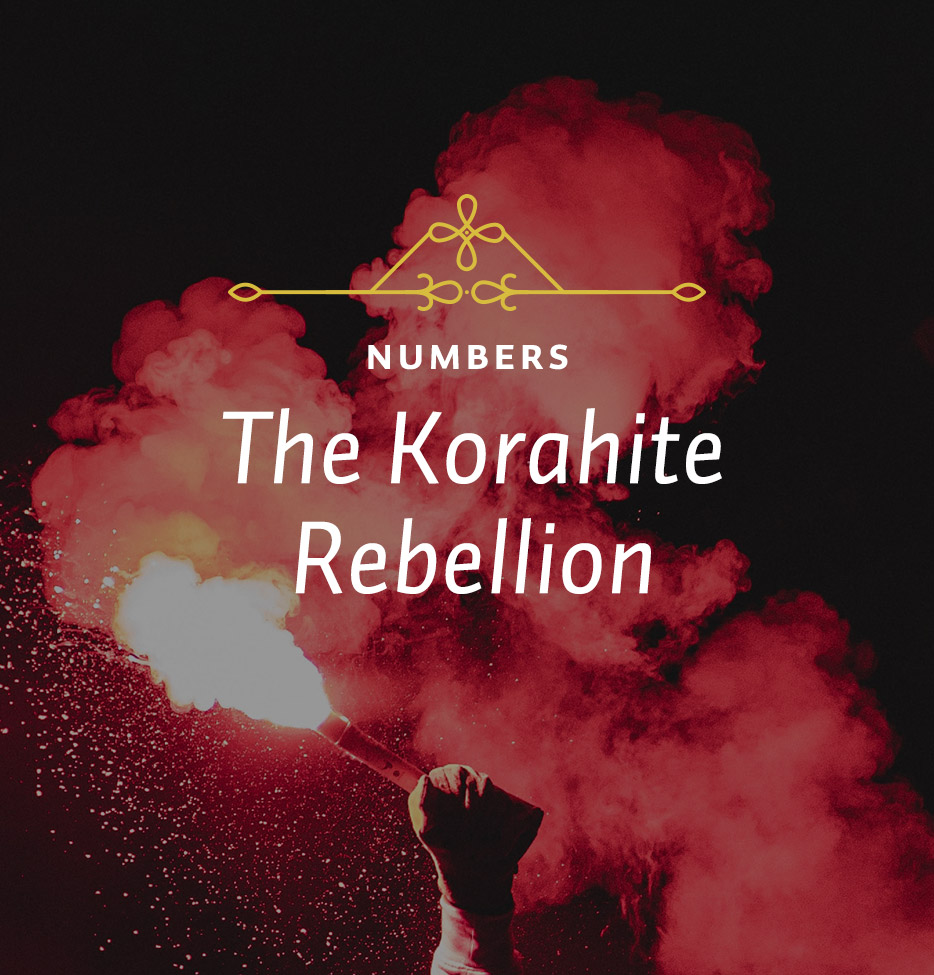When we come to verse 15, we’re told that Moses became very angry. But his anger was not violent or vituperative. As a matter of fact, it was very magnanimous. First, he protested his innocence, not to Korah or his followers, but to God. He asked God not to accept their offering. Later, when God said that He was going to destroy all the people, Moses and Aaron did what they did again and again: they interceded for the people, and because of their intercession the people as a whole were spared. Moses and Aaron prayed, “O God, God of the spirits of all mankind, will you be angry with the entire assembly when only one man sins?” (16:22). The answer is no. God doesn’t judge everybody for the sin of one. When God was going to destroy Sodom and Gomorrah and Abraham prayed a similar prayer, God spared Lot and his two daughters, the righteous ones in Sodom, even as he went on to destroy the city (Gen. 18:23-32).
God hears that same kind of appeal here. He says that He will not destroy the people, but He is going to destroy the leaders. His judgment was swift and utterly unexpected. We’re told that the ground under them split apart and the earth opened its mouth and swallowed them with their households and all their possessions. Scripture says, “They went down alive into the grave with everything they owned; the earth closed over them, and they perished and were gone from the community” (v. 33).
That’s very grim, and intentionally so. God shows what will happen if you try to set up a religion of your own and don’t come to Him in the way that He has provided. This was a physical destruction, but it’s symbolic of the destruction of our souls in hell if we do not come by the way of the one Mediator whom He has provided, namely, Jesus Christ.
Korah and his household were taken down alive into the earth. There were 250 leaders with their censers who were still standing before the tabernacle when the fire of the Lord went out and consumed them. Afterward, God told the people to go to the charred remains and gather up the censers. Although the men were unholy and had been consumed, the censers were holy.
The people gathered the censers up, and we’re told that they hammered them into a covering for the altar where the sacrifices were made. Every time the people came to the altar, they would see this metal that had once been the censers of the men who were consumed. It’s a very interesting combination of ideas: unholy men but holy objects, the wrath of God poured out in judgment, and a reminder of this where the animals were consumed as a substitute for sin. All of that came together in a very dramatic way, obviously so that the people would remember it.
Moses and Aaron had interceded for the people, but on the following day the people grumbled against Moses and Aaron again, resulting in God’s sending a plague to judge them. Moses recognized what was happening and told Aaron, in effect, “Quick, go and make atonement for the people. Stand before them in the judgment of the Lord” (see v. 46). And that is what Aaron did. He was eighty years old, the one whom the younger men wanted to push aside, and he ran to intercede for the people.
Aaron offered the incense and made atonement for them. We’re told, “He stood between the living and the dead, and the plague stopped” (v. 48). That’s what an intercessor does. He stands between the judgment of God and those who are still living. Aaron is a picture of Jesus Christ. He was the high priest of Israel, but the Great High Priest is Jesus Christ. By His death, he stands between us and judgment.
In chapter 17, God demonstrates whom He is choosing to be high priest, lest there be any more doubt about it. Each of the tribes is to elect a leader, and each leader is to come forward with his staff—the rod that he used to walk with or direct sheep. They marked their names on their staffs, and laid them before the Lord overnight. Moses said that whichever staff sprouted belonged to the one that God chooses. When they came back in the morning, not only had Aaron’s rod produced leaves, but it had gone on to bud, blossom, and even produce almonds.






